If you’re remodeling or redecorating your home, choosing a color palette can make the entire process easier. It’ll act as a guide for choosing your flooring, decor, furniture, and, of course, paint colors!
In need of a little inspiration? We’re here with some tips and tricks for creating home color schemes, 6 color palettes you can use yourself, and ideas for more to help you create the perfect space.
How to Create a Color Palette For Your Home
Choosing colors for your home is easy with these tips from the pros:
- Decorate vertically from dark to light. This simply means choosing darker colors for your floor and increasingly lighter colors as you go up the walls, ending with the lightest color on the ceiling. This is a foolproof way to make a room look balanced.
- Use the 60-30-10 Rule. Don’t panic, there’s no math involved! This rule simply means that 60% of your room will be a dominant color, typically your walls. 30% will be one accent color, usually your furniture, and the remaining 10% will be another accent color you use for decor, lamps, and accessories.
- Limit Your Color Palette. Overwhelmed with color choices? Limit your home’s color schemes to 3 or 4 colors per room. This will help you avoid creating a room that’s too “busy” or visually overwhelming.
Here are six color palettes to spark inspiration:
Monochromatic
Great for: bedrooms, living rooms, dining rooms, bathrooms
Some people associate monochrome with stark white rooms. But sticking to one color doesn’t have to be boring or dreary!
When choosing a monochromatic color palette, opt for a few shades of the same color and be sure to break it up with different neutrals. A monochromatic color scheme is a great choice for rooms with lots of windows, like this living room. The windows open the room up and create visual interest without adding to the limited color palette.
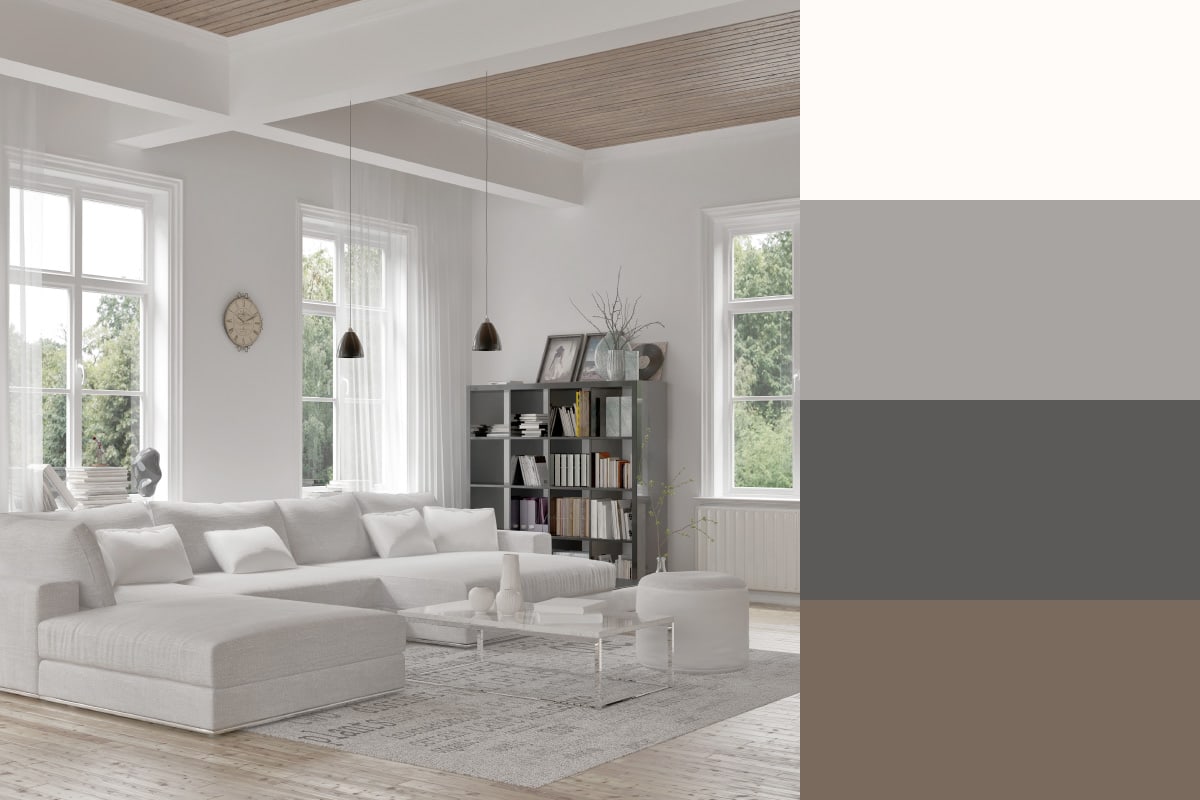
Jewel Tones
Great for: living rooms, dining rooms
Bright, bold jewel tones are having a moment in interior design. Look through home decor magazines or blogs and you’ll see shades of emerald, magenta, and goldenrod adorning walls in every room of the house.
But painting a room, or even an accent wall, such a bold color can be nerve wracking! If you’re not comfortable with that, you can Incorporate jewel tones into your home in a less bold way with furniture and accessories like throw pillows, blankets, and wall decor like in this living room. With jewel tones, a little can go a long way.
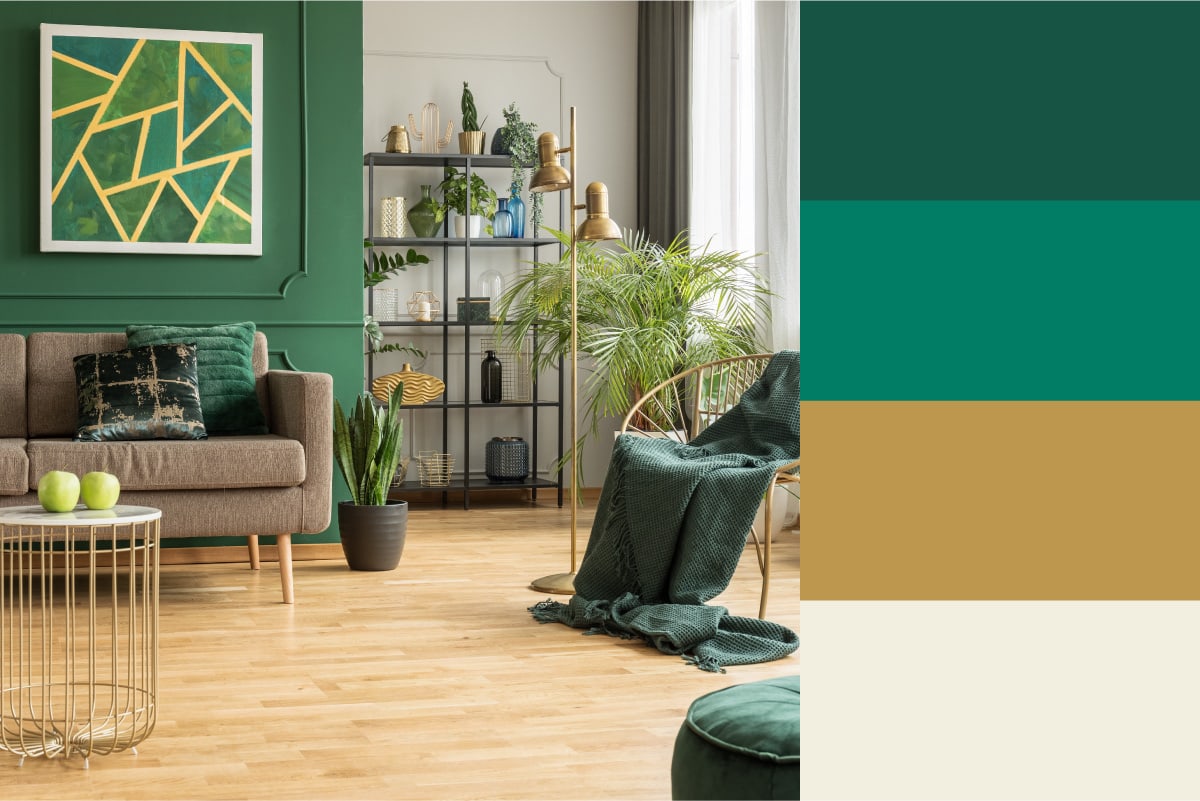
Earth Tone Color Palette
Great for: bedrooms, living rooms
On the opposite end of the spectrum from jewel tones are earth tones. Earthy doesn’t mean all neutral, though! Nature-inspired colors like tan, olive green, and terracotta are a great way to create a warm, relaxing space.
Start with a warm-toned wall color, a neutral couch, and decor and accessories in a few earthy colors.
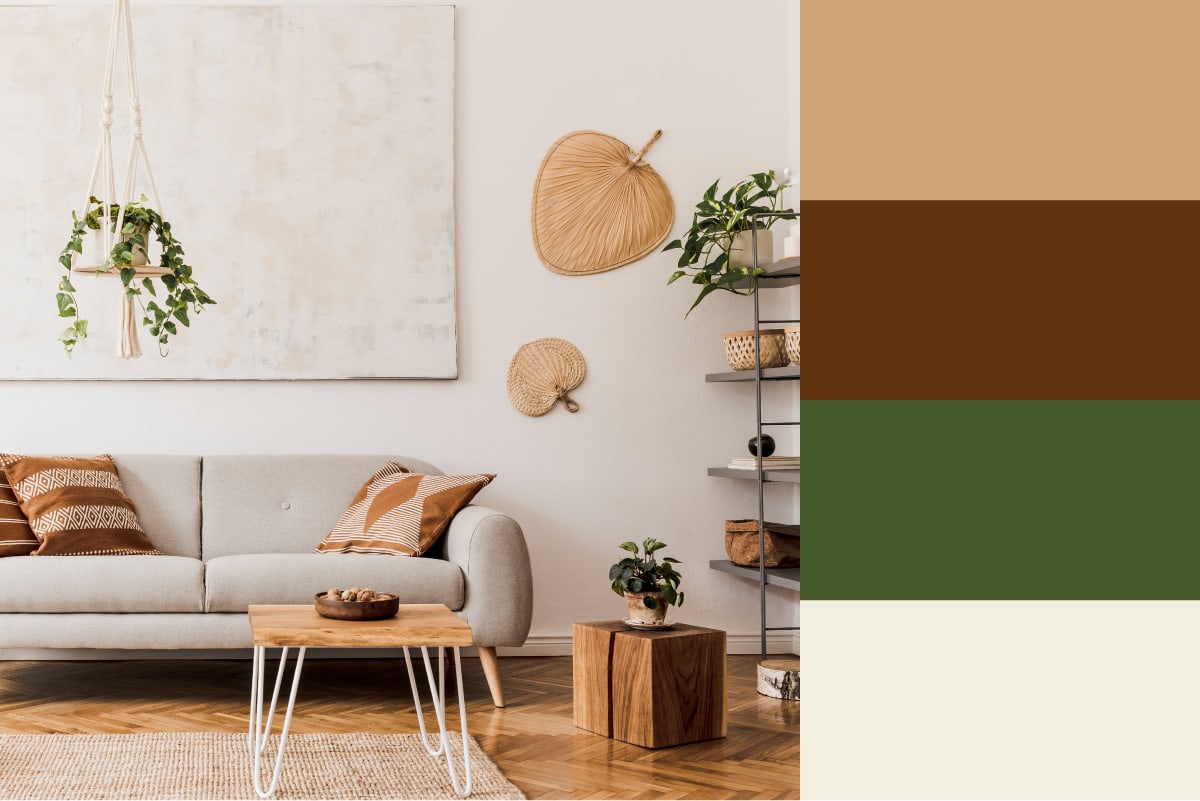
Complementary Colors
Great for: living rooms, bedrooms, kitchens, dining rooms
Complementary colors are more than just colors that look nice together, they’re colors that create the strongest contrast. How do you know if colors are complementary? Think back to that color wheel from elementary school art class. The colors across from each other on the wheel, like green and purple or blue and orange, are complementary.
Using two complementary colors is a great way to create a dynamic room. Whether you go all out and paint your space in complementary colors or play it a little smaller like this living room, choosing complementary colors instantly makes any room look cohesive and beautiful.
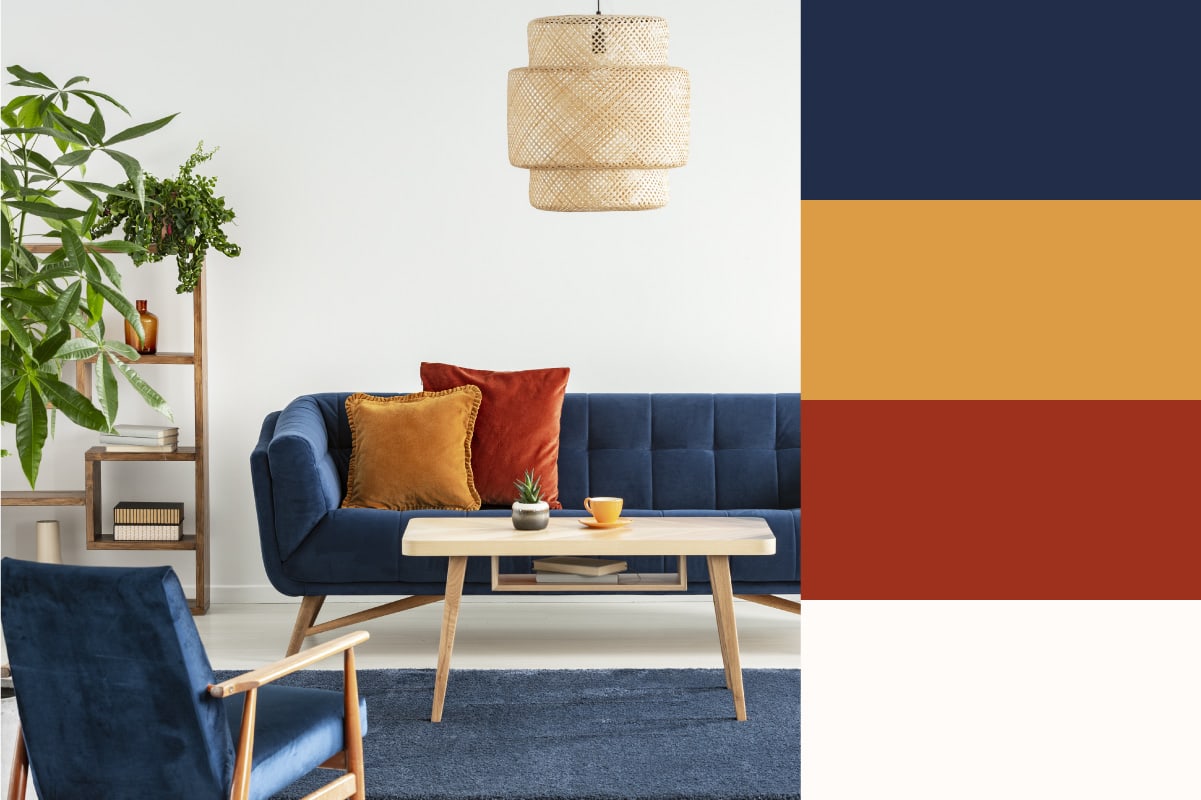
Bathroom Color Palette Ideas
Since bathrooms have a very specific function and are some of the smallest rooms in a house, it’s important to choose color carefully. Since darker colors can make a room look even smaller and bright colors may feel too chaotic in such a small space, light colors and neutrals are best for the bathroom.
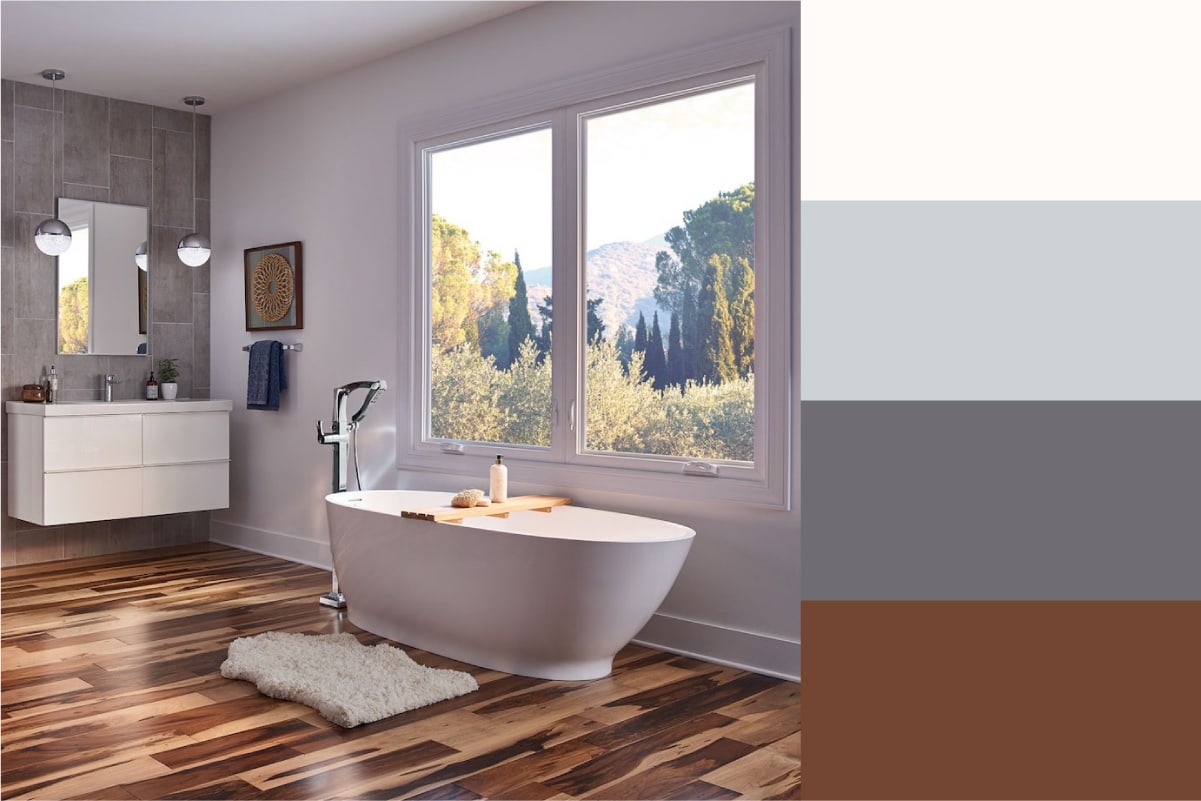
Kitchen Color Scheme Ideas
The kitchen might be one of the harder rooms to choose a color palette for. It’s already a busy area, and too much color can make it feel even busier. If all-neutral kitchens aren’t your style, a good approach is choosing one bold color and a few neutrals to work with.
These green kitchen cabinets really stand out from the white subway tile walls and wooden ceiling beams. If you don’t want to commit to painting your cabinets, choose wallpaper or even a colored tile backsplash.
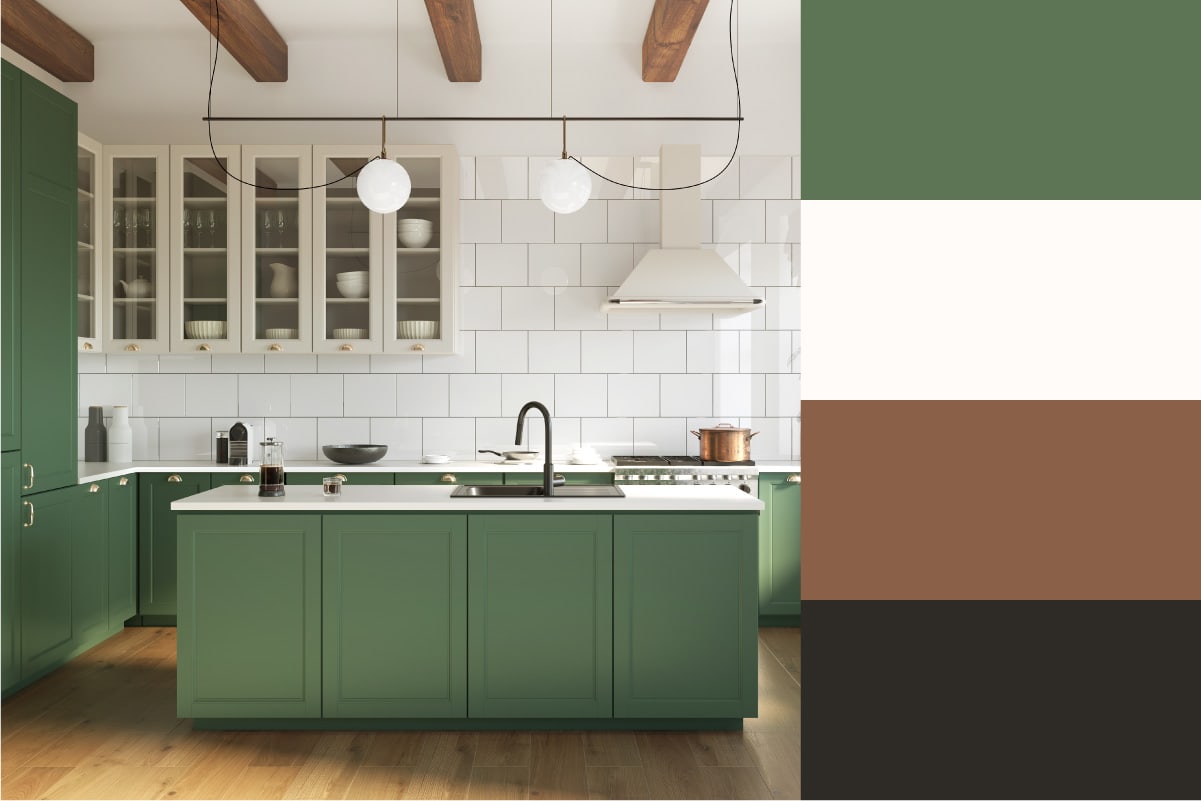
Complete Your Home Makeover with Window World
Replacement windows and doors add curb appeal and improve your home’s energy efficiency, keeping your energy bills low and your interior temperatures more comfortable. Get started by requesting your free estimate today!